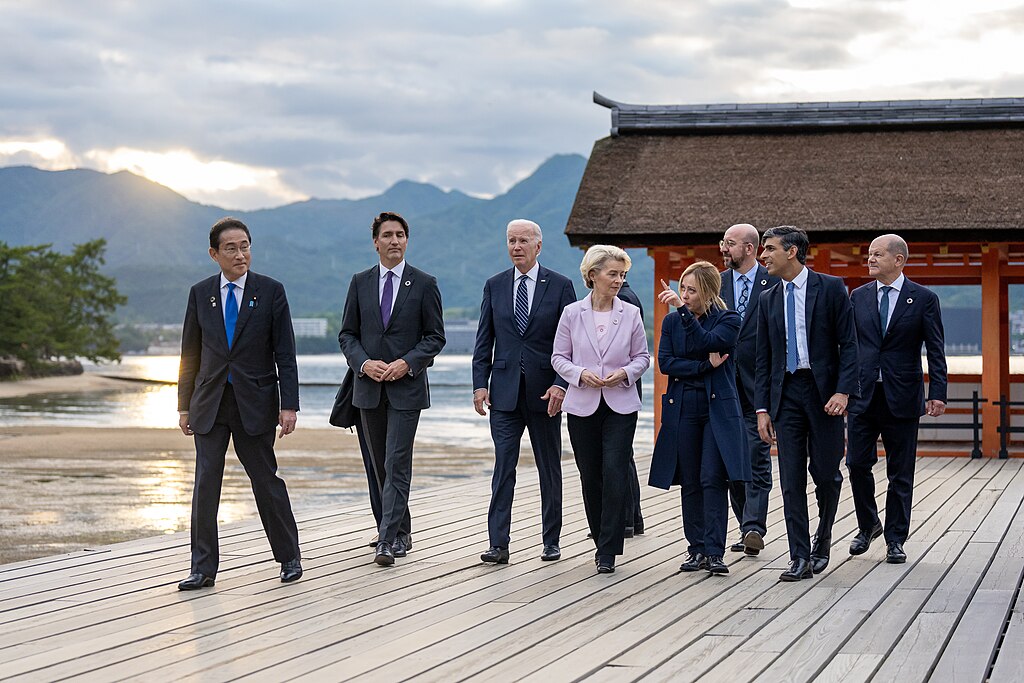American Dispatch: potentially volatile viewpoints of Europe

President Biden touring a Japanese shrine with G7 leaders in Japan 2023
Jacob Sagers – Recent Pew Research polling reveals a shift in perspectives from Americans toward Europe. Four in ten Republicans now believe that the United States is providing too much aid to Ukraine and is too involved in Ukraine’s war with Russia. Meanwhile, viewpoints about the invasion and Russia being a major threat to American interests has fallen “about 18%” since March 2022 to 32%. A recent focus on China and the Pacific region showcases a change not only in foreign policy but also in American identity. Nationalism, particularly among groups at the extremes of the political spectrum, challenges the current geopolitical status quo and American relations with Europe.
Nationalism is taking the idea of shared attachment to a nation and using it to justify political action. American nationalism has appeared in many forms in the past, whether to propagate Manifest Destiny or during the Cold War. However, isolationist stances amid growing skepticism of the benefit of alliances with European states, such as NATO, have grown in recent years. Traditionally, the United States and Western European countries have been allies, forming “the West” whether through colonial periods, the World Wars, and the Cold War. American nationalism has been partially constructed through this attachment to the US being a part of Western powers: with shared history and values and Russia being portrayed as the natural enemy. This has been used to justify US actions in Europe, however nearly: “Around four-in-ten U.S. adults (39%) say they approve of the Biden administration’s response to Russia’s invasion of Ukraine, while about a third (35%) disapprove…” American involvement in European politics, especially involving Russia, used to be a given but future elections might alter American decisions.
Geopolitical codes are also used to justify past and present actions to the public. Forming NATO, the Vietnam War, and the War in Iraq included American interests, while employing nationalistic ideas, such as being a beacon for democracy, to justify the US government’s actions. Whether it is justified, and moral, is up for debate but slight changes in geopolitical codes and actions reflect its symbiotic relationship with nationalism. These changes in American opinion and portrayals of American nationalism can have drastic consequences on geopolitics. If the American tide continues to turn, it leaves one to wonder whether Europe will look towards new allies.
Picture Credit: Photo distributed under Public Domain in the US. Source

